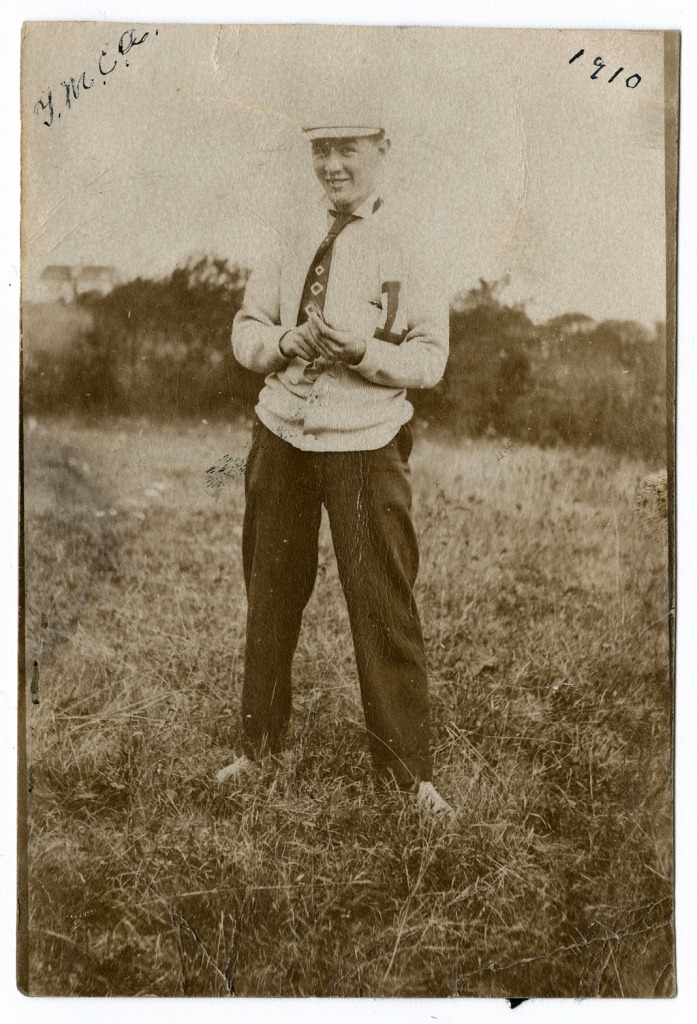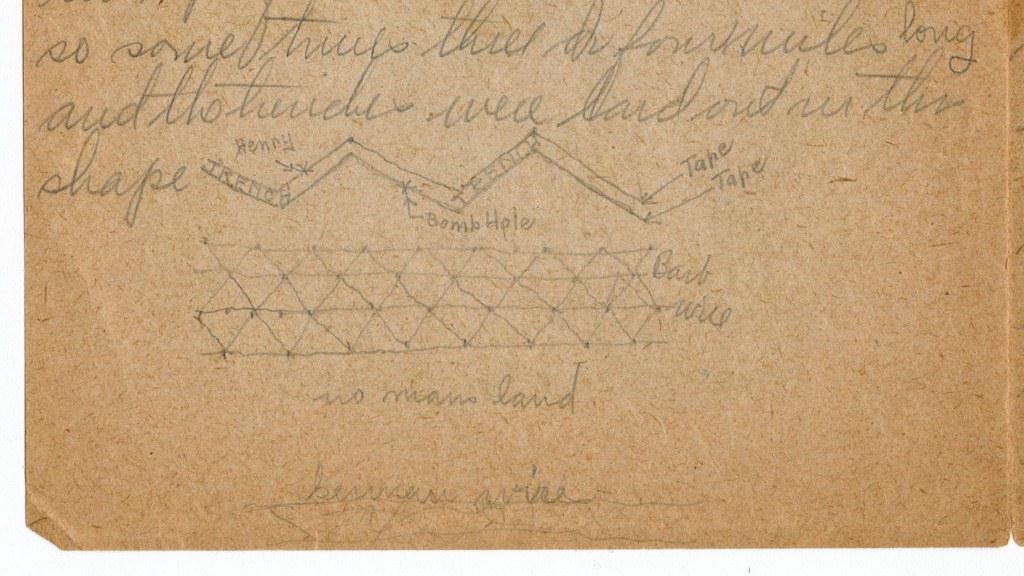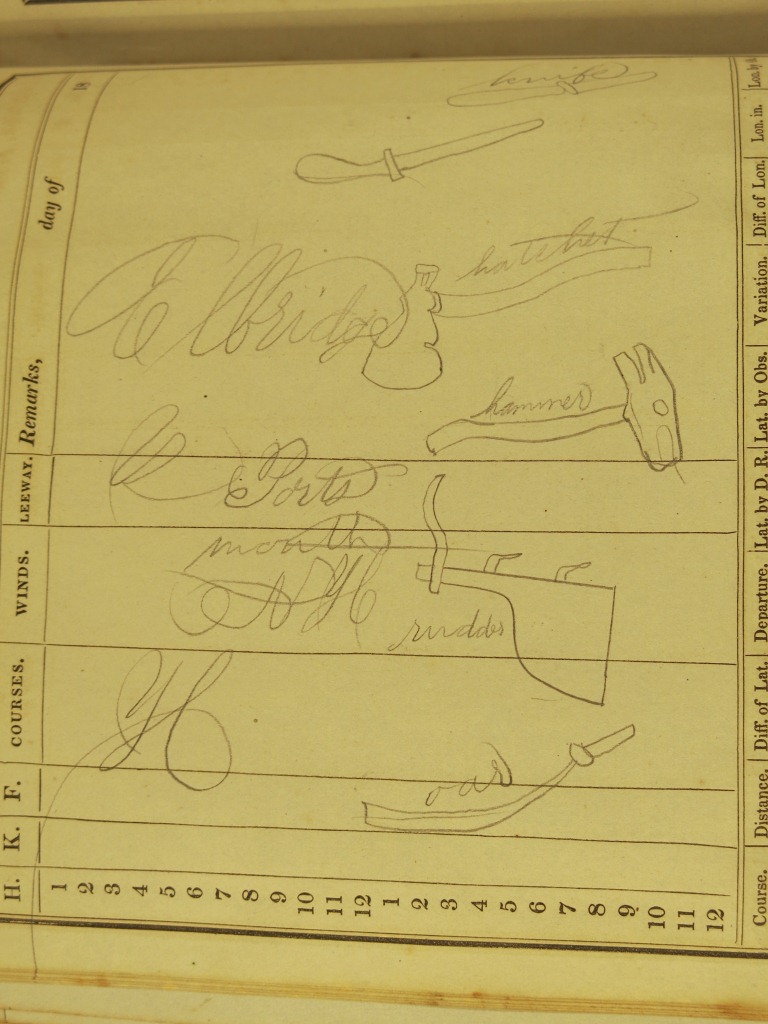By Dan Hinchen
We have another busy week ahead here at the Society, starting with a holiday event. Please note that the library of the MHS is closed on Monday, 13 October, in observance of Columbus Day. However, the building will remain open as part of Opening Our Doors, Boston’s largest single day of free arts and cultural events. The galleries are open 10:00AM-3:00PM. Stop by to view Letters and Photographs from the Battle Country: Massachusetts Women in the First World War. This event is free and open to the public.
On Tuesday, 14 October, drop by the MHS at 5:15PM for an Environmental History seminar. In “Finding Meaning and Debating Value in a Historical Landscape,” David Benac of Western Michigan University looks at the competing interpretations of landscape as a resource or as a haven. Adding nuance to the debate, Benac employs a third category: historical significance. Victoria Cain, Northeastern University, provides comment. Seminars are free and open to the public; RSVP required. Subscribe to receive advance copies of the seminar papers.
There are two events on Wednesday, 15 October, that are open to the public. First, beginning at noon, stop by with a lunch to hear Rachael Abbiss of the University of Chester present “The Role of the Military within Imerpial Security Policy, 1685-1689.” This Brown Bag talk highlights a project which examines the army and military policy in the Dominion of New England between 1686 and 1689. This event is free and open to the public. Then, beginning at 6:00PM, join us for a talk given by J. Kevin Graffagnino of the William L. Clements Library, University of Michigan. “Rebels in Vermont!: The St. Albans Raid” details the events of the 1864 attack on St. Alban’s, VT by a band of 22 Confederate soldiers. There is apre-talk reception that begins at 5:30PM. This event is open to the public with a fee of $10 (no charge for Fellows and Members). RSVP required. Please call 617-646-0560 or click here to register.
Beginning on Friday, 17 October, is a two-day teacher workshop titled “Massachusetts Women and the First World War.” The workshop explores the activities of Massachusetts women involved in the Great War, beginning before the official involvement of the U.S. in 1917. The events feature material from collections of the Massachusetts Historical Society and the Fort Devens Museum. There is a registration fee of $75 and includes lunch both days, materials, and admission to the Fort Devens Museum. Day one (17 October) takes place in Devens and day two (18 October) at the MHS. This workshop is open to all K-12 educators as well as history enthusiasts. To register complete this Registration Form and send it with your payment to: Kathleen Barker, Massachusetts Historical Society, 1154 Boylston Street, Boston, MA 02215. Contact education@masshist.org for more information.
Finally, on Saturday, 18 October, there is a public tour at the Society. Beginning at 10:00AM, “The History and Collections of the Massachusetts Historical Society” is a 90-minute docent-led walk through our public rooms. The tour is free, open to the public, with no need for reservations. If you would like to bring a larger party (8 or more), please contact Curator of Art Anne Bentley at 617-646-0508 or abentley@masshist.org. While you’re here you will also have the opportunity to view our current exhibition, “Letters and Photographs from the Battle Country: Massachusetts Women in World War I.”


 Some of them were written to anxious parents by very young soldiers, barely out of high school and full of bravado. Others come from older, battle-hardened men who write wistfully to their children while shells fall around them. Sometimes a soldier breezily anticipates the upcoming battle in which we know
Some of them were written to anxious parents by very young soldiers, barely out of high school and full of bravado. Others come from older, battle-hardened men who write wistfully to their children while shells fall around them. Sometimes a soldier breezily anticipates the upcoming battle in which we know 
